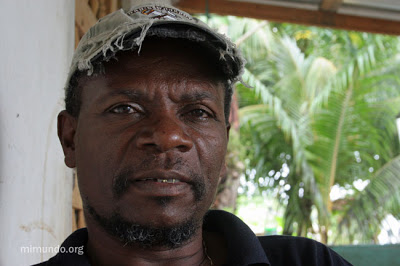






San José, December 31, 2006.- On February 1st, the Inter-American Court of Human Rights issued the ruling on the case of Alfredo López Álvarez against the State of Honduras.
Alfredo López, Honduran Garífuna leader was arrested on April 27, 1997, by state authorities for alleged possession and trafficking of narcotics. He was on preventive detention for 6 years and 4 months, despite the fact that one year after the arrest it was determined that the substance that had been confiscated was not narcotic. During his imprisonment, he experienced subhuman prison conditions and was not allowed to speak in his mother tongue, Garífuna.
In its ruling, the Court reminded the State that preventive detention must be applied only while the criminal responsibility of the accused is being determined and that it must be limited by the principles of legality, presumption of innocence, necessity, and proportionality, essential principles in a democratic society. By failing to fulfill such characteristics, the Court determined that the imprisonment of Alfredo López was arbitrary and illegal.
The State was also condemned due to the damage inflicted on the human dignity of the Garífuna leader and the violation of his rights as a detainee. To reach this decision, the international court considered the overcrowded conditions in which was living in; he had to sleep on the floor for long periods; he did not have adequate food, nor drinking water, nor did he have basic hygienic conditions. In addition, during the time he was incarcerated he remained in the same spaces of prisoners who were already condemned.
The Inter-American Court determined that the right of presumption of innocence of Alfredo López was violated during the judicial process against him and that he was physically and psychologically mistreated to force him to self-incrimination.
Regarding the prohibition of speaking Garífuna, the Court pointed out that the State acted against the individuality of the detainee since the mother tongue represents an element of identity. Therefore, highlighting the importance of States taking into account and respecting the cultural identity of indigenous peoples. Language is one of the most important elements of a people’s identity because it guarantees the expression, diffusion, and transmission of their culture. The Court concluded that the restriction against Alfredo López was discriminatory and against his freedom of speech.
As a consequence of these acts, the State of Honduras was condemned and ordered to create the conditions that would allow the prisoners to receive adequate food, medical attention, physical and sanitary conditions under international standards and it also ordered human rights capacitation activities for prison officials.
For CEJIL and the Honduran Black Fraternal Organization (OFRANEH), representatives of Alfredo López before the Inter-American Court, this ruling represents a milestone in the recognition of the rights of indigenous peoples and their cultural identity, as well as in the adaptation of prison conditions to fit international standards.
It is important to point out that the rulings of the Inter-American Court of Human Rights are binding for the member countries of the Organization of American States (OAS) that have accepted its jurisdiction.
Related links:
Case López Álvarez vs. Honduras
The Inter-American Court hears the case of Alfredo López [ES]
Help us continue this critical and urgent work with a donation!
DONATE NOW